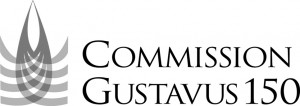
What do we want Gustavus to be? This is the main question Commission Gustavus 150 is aiming to answer. When President Jack Ohle announced the initiative this past fall, he did so with the goal of developing steps to implement the college’s strategic plan and to celebrate its sesquicentennial in 2012. Eight taskforces were created to meet and submit recommendations to the Board of Trustees for areas of future advancement of the college.
The recommendations are due April 30, 2009, and according to Executive Director of Commission Gustavus 150 Barb Larson Taylor, the taskforces are now “at the midpoint of the work that is needed to be done.”
As it stands right now, the Commission is nearing the completion of its idea phase. The college is not, however, relying solely on the taskforces to gather ideas. President Ohle is holding 16 summit meetings around the country. “These are half-day meetings where we use framing questions to talk about our core values,” said Larson Taylor. The national summit meetings include stops in Chicago, Denver, Florida, Phoenix, San Francisco, Seattle and Tucson.
Once the recommendations are submitted, the work is by no means complete. All recommendations will be posted on a private website for Gustavus students, faculty, staff and alumni to rate from one to five on levels of importance. “We are publicly staking where we want to be as a college, and we want everyone to feel ownership of these ideas,” said Larson Taylor.
Students will have prime opportunities to share their input in the coming months. “This is an exciting opportunity for the college and for me, knowing the future of the college will be mapped around alumni when I graduate,” said Senior History Major John Bennetts.
He is also an intern with the Commission and will be holding meetings with many student organizations in the coming weeks about the initiative. “We will be holding grass-roots meetings with student organizations to educate them and gather their input in the process,” said Bennetts.
Making all Gustavus constituents feel connected with these ideas may prove to be critical as the Commission moves forward. Once all of the feedback is gathered, the Board of Trustees will meet and set the priorities in order in August. From there, new fundraising campaigns will be drafted to obtain the money needed to implement the priorities. “People give their money to where they are engaged,” said Larson Taylor.
Larson Taylor views the Commission as equally important for current students and long-time alumni. “As the college continues to improve, your degree gets more and more valuable. Having a valued degree and being able to tap into a network of Gusties, especially during career transitions, is a real benefit to you. If Gustavus got mediocre, suddenly your degree just got mediocre,” said Larson Taylor.
Perhaps it will be the ideas being circulated and the feedback being gathered at this very moment that, once put into action, will ultimately affect the reputation of a Gustavus Adolphus College degree in the years to come.
For more information about Commission Gustavus 150 visit its website at www.commissiongustavus150.org.